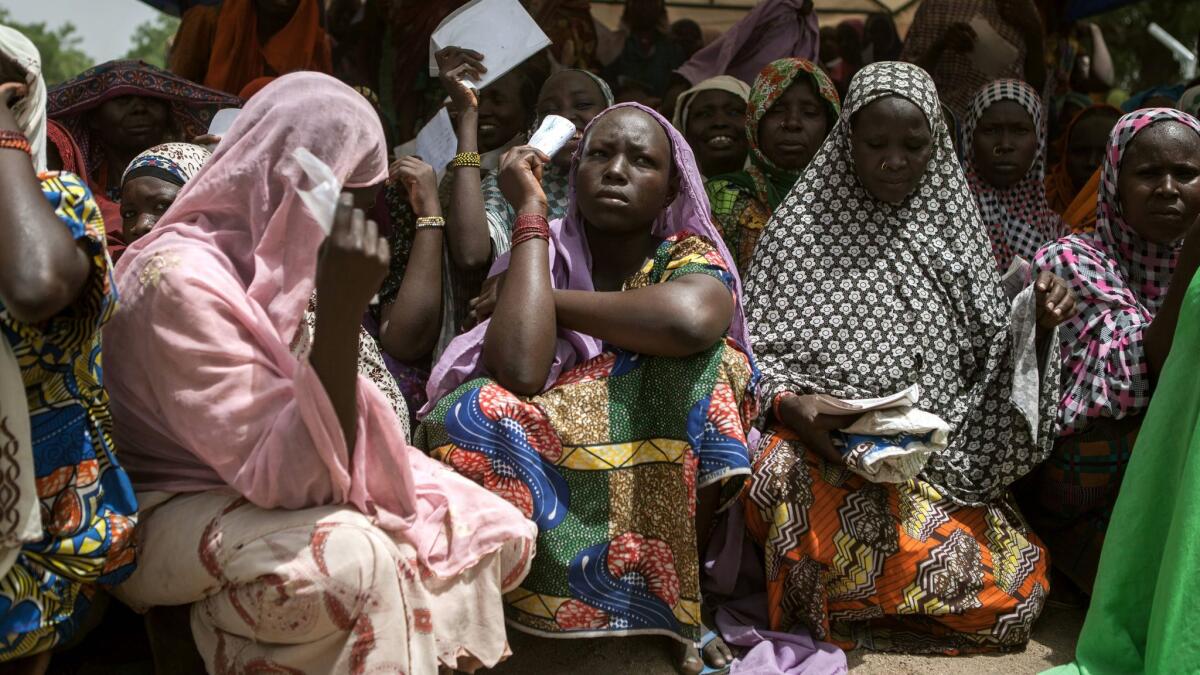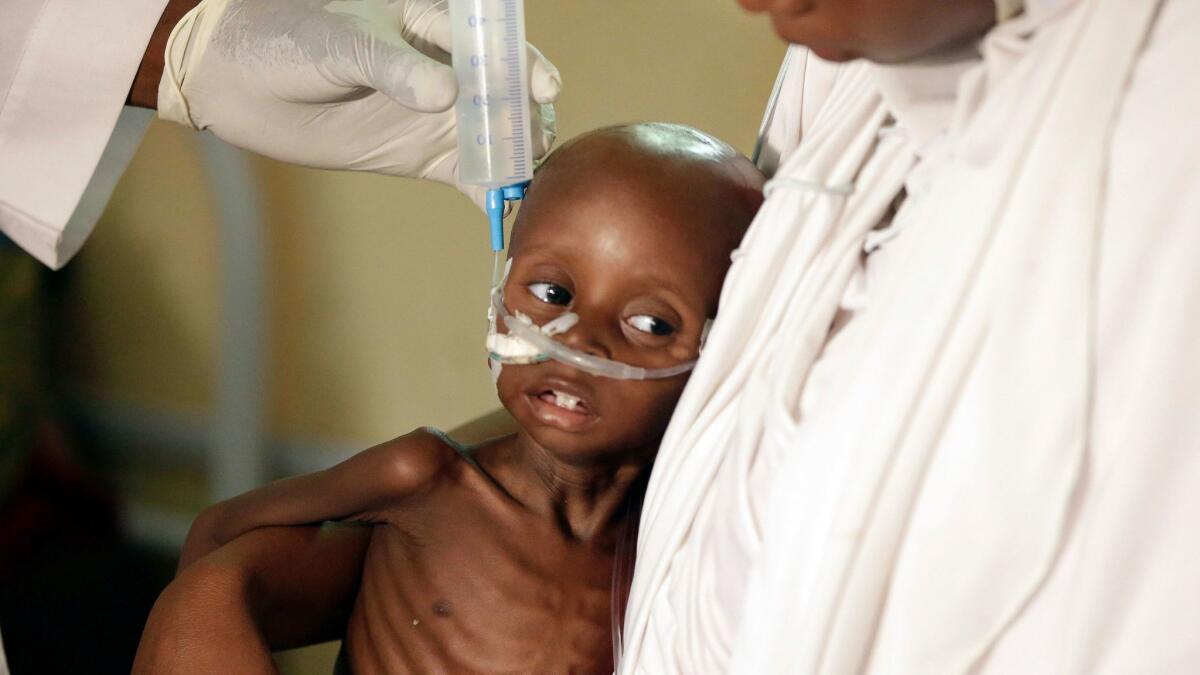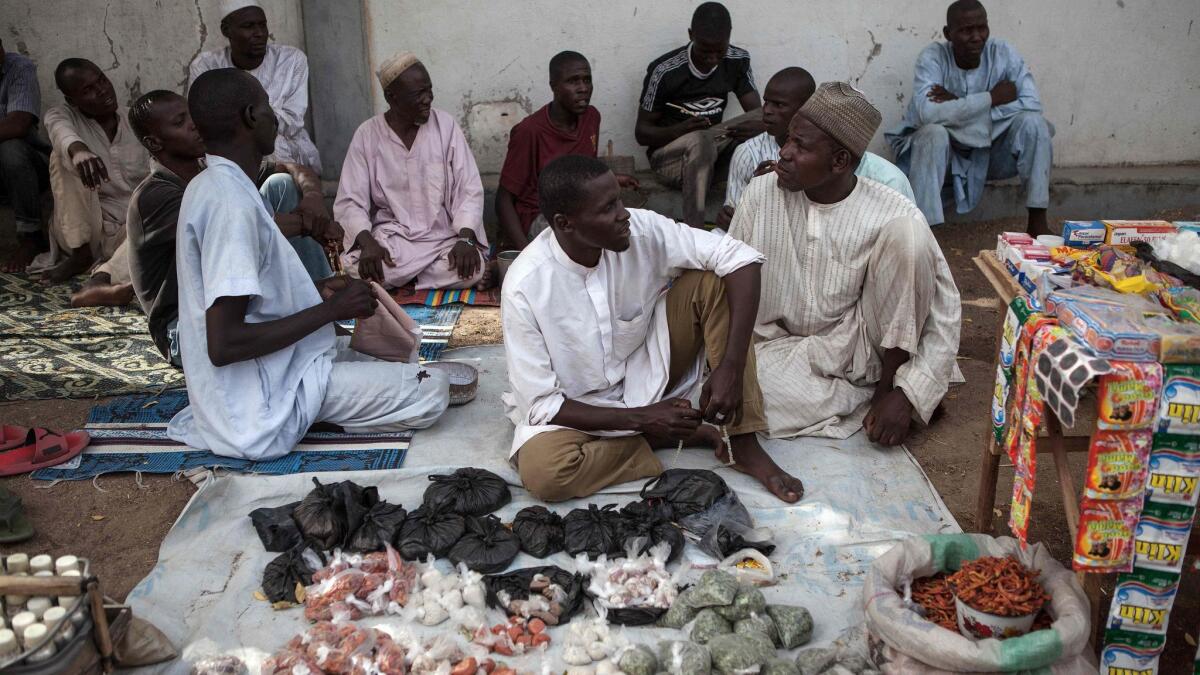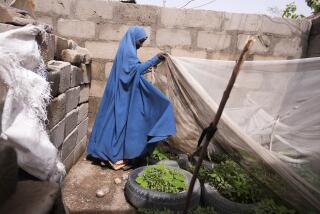Op-Ed: Stabilizing vulnerable communities in Nigeria is key for easing dependency on humanitarian aid

- Share via
The Lake Chad basin in Nigeria is on the brink of famine. For seven years, Boko Haram insurgents have descended on communities, driving people from their homes and killing thousands.
The level of destruction is breathtaking. But more shocking is the vulnerable position survivors are in now. There are 5.7 million people in northeast Nigeria in urgent need of food, most of them children. This number will continue to rise unless we act.
Humanitarian aid is reaching those in need, but with the existing funding gap, assistance will soon run out and the lives of millions will be at risk. We must help them now.
This crisis is exposing long-standing vulnerabilities — poverty and exclusion have just made matters worse. Seven out of 10 people lived in extreme poverty even before the crisis began. With the majority of the two million displaced being hosted in communities rather than in formal camps, the crisis has put enormous strain on an already fragile system.

But it is not safe for people to go back home. Their communities are destroyed and members of the militant group Boko Haram are still at large.
Stabilizing communities — both where they are sheltering now and where they intend to return to — will enhance resilience and help ease dependency on humanitarian aid. Communities need to be stable before people can go home, which means restoring basic services and buildings, getting livelihoods back up and running, and restoring security to protect the vulnerable.
When the international community adopted the Sustainable Development Goals in 2015, we declared that no one would be left behind. This was not meant only for those living in peaceful countries. We must ensure that the millions who are displaced and facing famine are included — they need more than humanitarian aid.
We don’t have to wait for people to return home to ensure that the U.N. goal targeting gender equality and social cohesion is addressed. More than 23% of households in the affected areas are headed by women. This means they must be included in decision-making during the crisis, and they must be at the table when local governments return. That is why the United Nations Development Program is targeting women and the most vulnerable with our support in this crisis.
We must also ensure that children have safe schools, with teachers who are paid on time. Access to education is another one of the Sustainable Development Goals and, with special attention for girls, it will help build a stronger society for Nigeria’s future.
While over 400,000 displaced children are receiving education, there is a need to rebuild schools back in their home communities so that they do not fall through the gaps when they return. That’s why UNDP has rebuilt schools and is working with the government to ensure teachers are paid on time.
Another goal focuses on decent work and economic opportunities, which can turn the tide of poverty and food insecurity in affected communities. More than 30% of livelihoods are agricultural, and these have all but ground to a halt.

Farmers have not planted crops for three years. Boko Haram has destroyed the local trade that provided vital income. Crucial commodities are selling at massively inflated prices, and 86% of households spend more than they earn. Yes, creating immediate employment bridges the gap between relief and recovery, but we must focus on stabilizing economic opportunities for the long term.
Meanwhile, another goal looks at peace and strong institutions, and so we are facilitating work to build trust between military and police and the communities they serve.
Small communities facing the onslaught from Boko Haram formed vigilante groups and civilian militias. Now we must ensure that these are incorporated into legitimate systems, or are offered other means of income. Otherwise, we risk putting lives, as well as peace and stability, at risk.
The Sustainable Development Goals were not designed to be achieved in a vacuum. Whether you’re in a camp, a host community or at home, everyone deserves a better life. Everyone deserves access to education, health, justice, jobs and a prosperous community. We must not forget the most vulnerable in our aim to reach the goals and must ensure that no one is left behind.
Edward Kallon is the resident representative for the United Nations Development Program in Nigeria.
More to Read
Sign up for Essential California
The most important California stories and recommendations in your inbox every morning.
You may occasionally receive promotional content from the Los Angeles Times.













